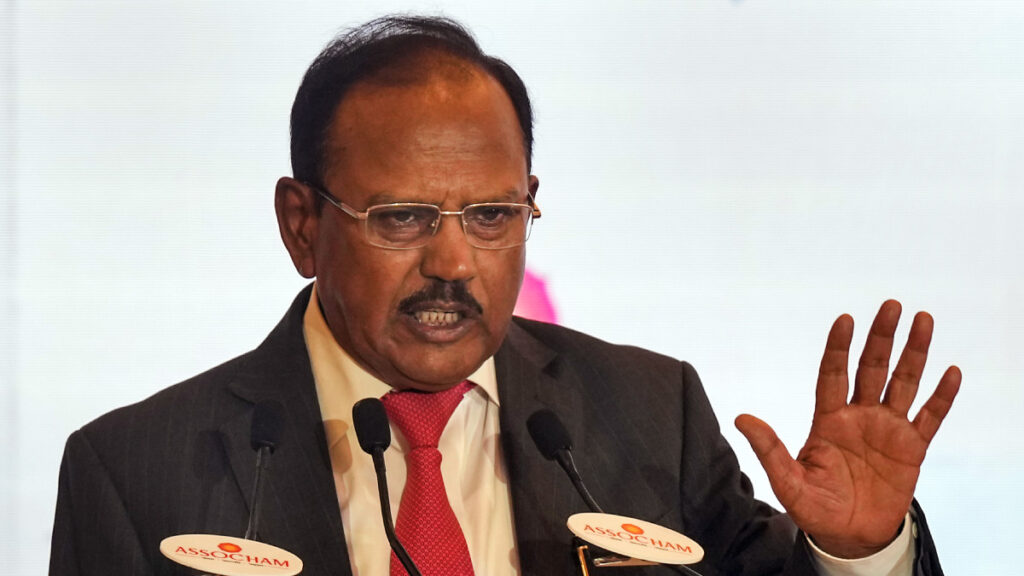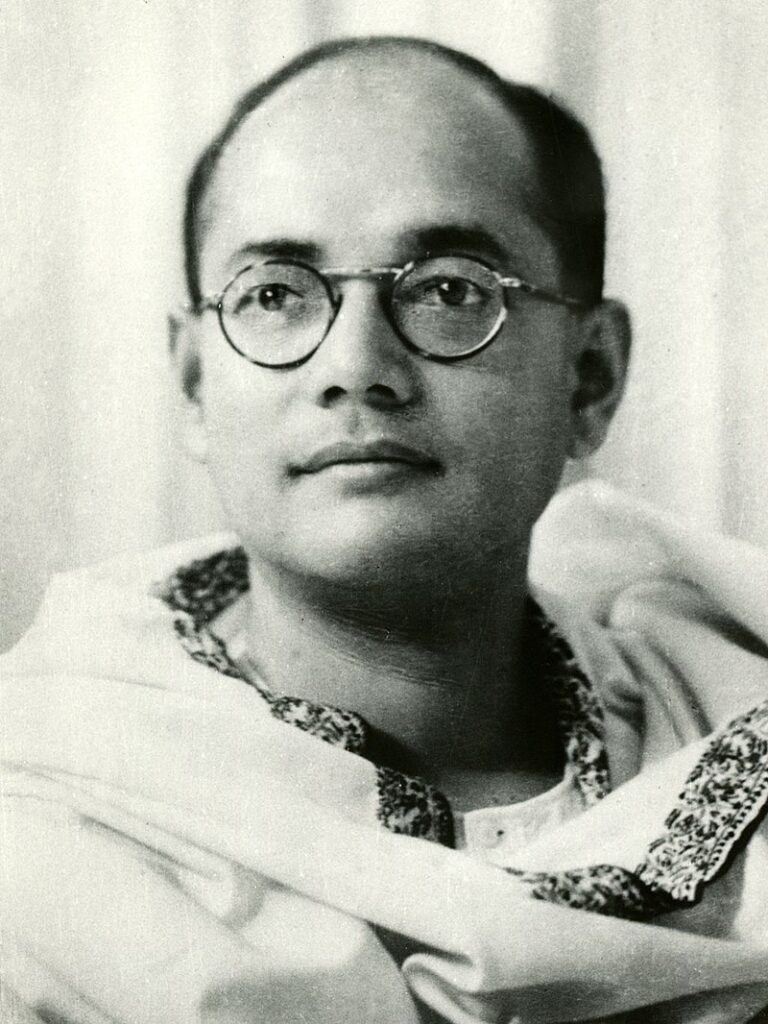National Security Advisor Ajit Doval delivered his first speech at the Netaji Subhash Chandra Bose Memorial in Delhi on Saturday, June 17. During this, he made important comments on Netaji’s personality and the partition of the country. The NSSA said, “If Netaji Subhash Chandra Bose had lived, India would not have been partitioned.”
“Netaji showed courage many times in his life and he even had the courage to challenge Mahatma Gandhi,” he said. Doval said, “But Mahatma Gandhi was at the peak of his political career at that time.” Bose quit the Congress. “I am not saying good or bad, but there are very few parallels in Indian history and world history for people who had the courage to go against the tide and not take it easy.”

Japan supported Netaji.
Doval said that “Netaji was alone, there was no country to support him except Japan.” NSA said, “Netaji had said that I would not settle for anything less than complete freedom.” He said that the country should not only be freed from political subjugation, but the political, social and cultural thinking of the people should be changed and they should feel like free birds.
When Netaji was in India, partition would not have happened.
“Netaji had this idea in his mind that I will fight the British, I will not beg for freedom.” I will consider it my right. Doval said, “In the presence of Subhash Chandra Bose, India would not have been partitioned.” Jinnah said that he could trust only Subhash Chandra Bose. The National Security Advisor said, “A question often comes to my mind. Are our efforts in life or their results important.”
The NSA said, “No one can doubt Netaji’s great efforts, even Mahatma Gandhi was his admirer, but people often judge you by your results.” Did all of Subhash Chandra Bose’s efforts go in vain? “History has been unkind to Netaji, I am very happy that Prime Minister Modi is keen to revive him,” the NSSA said. #
What is the history of Netaji?
Many Indians will never forget the patriotic spirit of Indian nationalist Subhash Chandra Bose. He is known for forming the “Azad Hind Fauj” group, whose motto was “Tum mujhe khun do, mein tumhe azadi dunga.”
On August 18, 1945, Netaji Subhash Chandra Bose died in a hospital in Taiwan due to burn injuries sustained in a plane crash. He was born on January 23, 1897 in Cuttack, Odisha.
Subhash Chandra Bose, the most famous freedom fighter, was a captivating orator and had remarkable leadership skills. He has numerous catchy phrases like “Delhi Chalo,” “Tum Mujhe Khoon Do,” and “Main Tumhe Azadi Doonga.” He founded the Azad Hind Fauj and actively participated in India’s freedom struggle. He is known for both his socialist principles and the tough tactics he used to gain independence.

Netaji Bose, Subhash Chandra Bose’s Principles
He was influenced by the Bhagavad Gita, and used it as inspiration to fight the British. Subhash Chandra Bose was greatly influenced by the universalist and nationalist beliefs of Swami Vivekananda from a young age.
While he was a part of the Congress Party, he became interested in the concepts of socialism and communism. He believed that if National Socialism and Communism were merged, it would succeed in India. He supported secularism, gender equality, and other liberal beliefs, but he did not believe that democracy was the best form of government for India.
Death of Netaji Subhash Chandra Bose
On August 18, 1945, Subhash Chandra Bose died in a plane crash as INA soldiers were taken prisoner or surrendered and he was en route to Tokyo via Taiwan. According to reports, Subhash Chandra Bose died in a plane crash over Taipei, Taiwan (Formosa) on August 18, 1945.
Despite the popular belief that he survived the plane crash, not much is known about him.
Who is Ajit Doval?
Ajit Kumar Doval is the fifth and current National Security Advisor (NSA) to the Prime Minister of India. He is a former Indian intelligence and law enforcement officer who retired from the Kerala cadre of the Indian Police Services (IPS). He was the youngest police officer in India to receive the Kirti Chakra for distinguished service, a military decoration for gallantry, and was born in 1945 in Uttarakhand.
Doval oversaw India’s surgical operation in September 2016 and its airstrikes on Pakistan’s Balakot in February 2019. He also contributed to the resolution of the Doklam standoff and took strong action to quell the insurgency in the Northeast.
As an IPS officer who started his police career in 1968, Doval actively participated in counter-insurgency operations in Punjab and Mizoram. He was one of the three negotiators who played a key role in the release of passengers from IC-814, which was hijacked in Kandahar in 1999. Between 1971 and 1999, he prevented at least 15 hijacking attempts on Indian Airlines planes.
Doval is accused of working undercover in Pakistan for seven years, gathering information on active extremist organisations. He served as a secret spy for a year before spending six years at the Indian High Commission in Islamabad.
Doval was also crucial in gathering intelligence for “Operation Blue Star”, launched in 1984 to suppress the Khalistani insurgency. Doval toured Kashmir in 1990 and convinced soldiers and militants to join forces with the counter-insurgency, paving the way for elections in Jammu and Kashmir in 1996.
Ajit Doval worked with the Intelligence Bureau (IB) for most of his career as an active field intelligence officer. Doval has established a reputation for taking a tough stance against terrorism and extremism, earning him a number of prestigious awards, accolades and records.
Doval became the founding director of the Vivekananda International Foundation in 2009 after his retirement.
Ajit Doval oversaw the rescue of 46 Indian nurses who were held captive in an Iraqi hospital in Tikrit in 2014. On June 25, 2014, he embarked on a top-secret mission and went to Iraq to learn more about the situation there and establish high-level contacts with the Iraqi administration.
The nurses were sent back to India on July 5, 2014. Later, Doval, along with Army Chief General Dalbir Singh Suhag, led a successful military operation in Myanmar against National Socialist Council of Nagaland terrorists operating out of that country.
In 2019, in the second term of the Narendra Modi-led National Democratic Alliance (NDA) government, Doval was reappointed as National Security Advisor for another five years and was given a cabinet position.